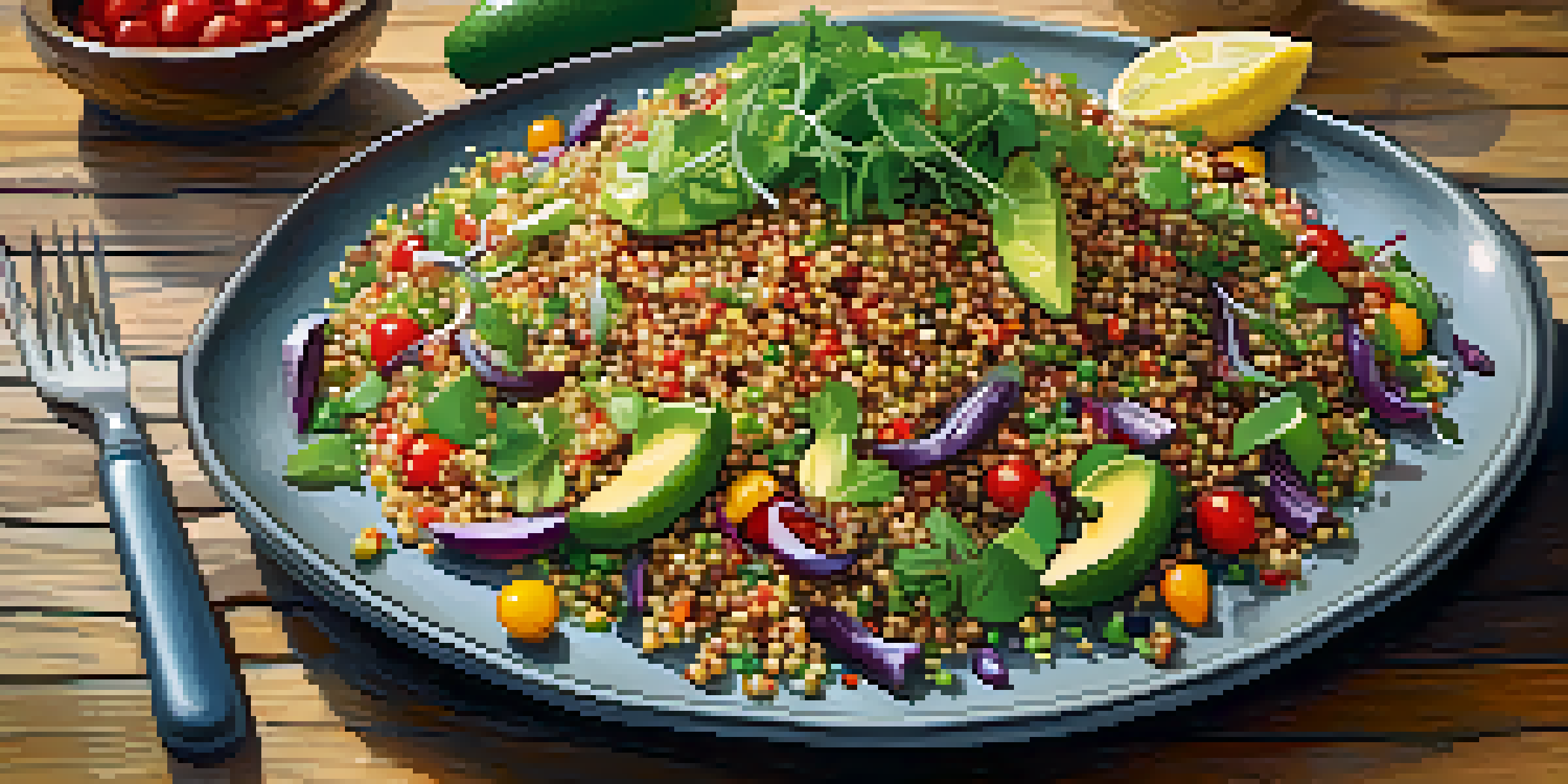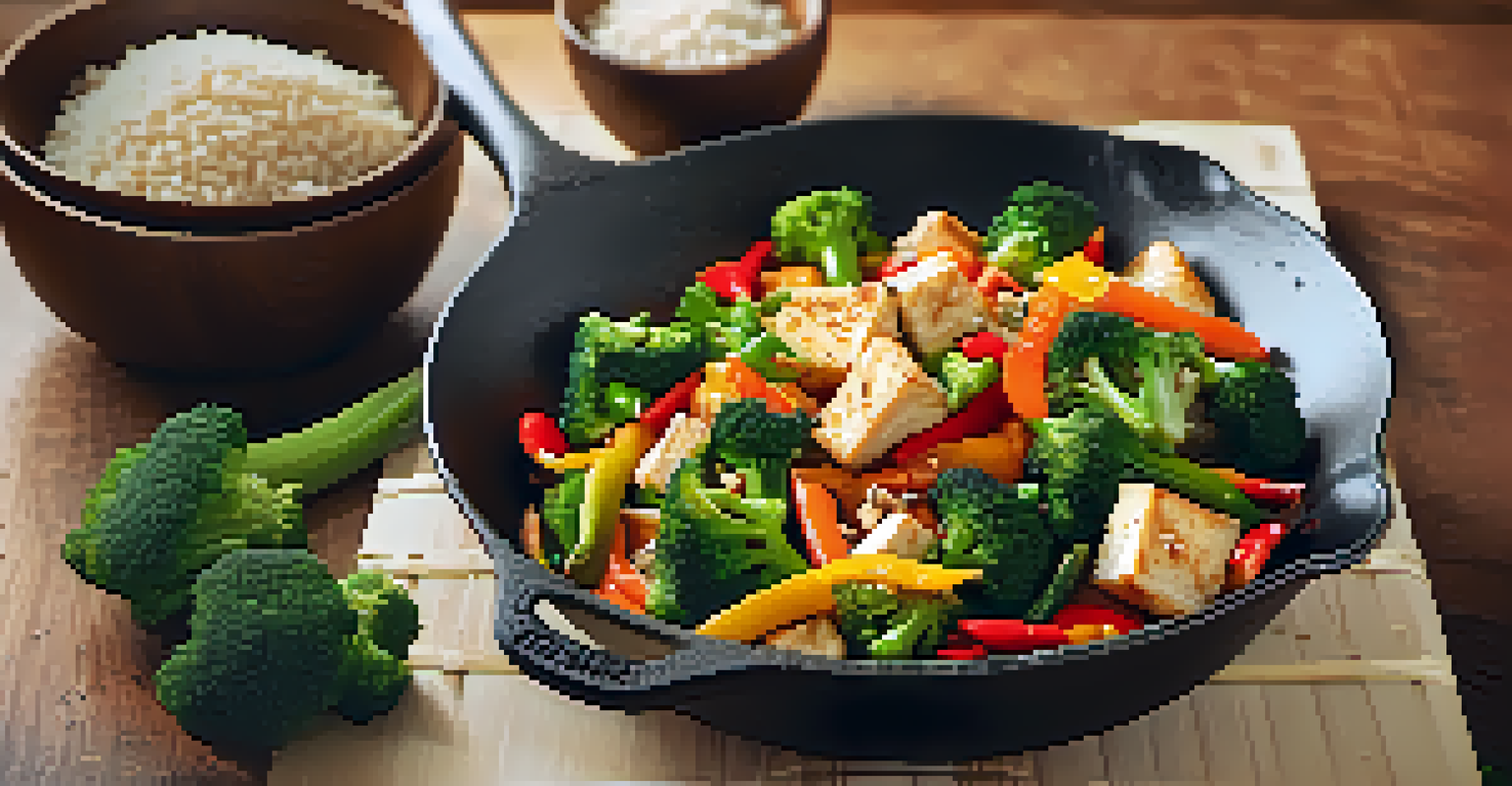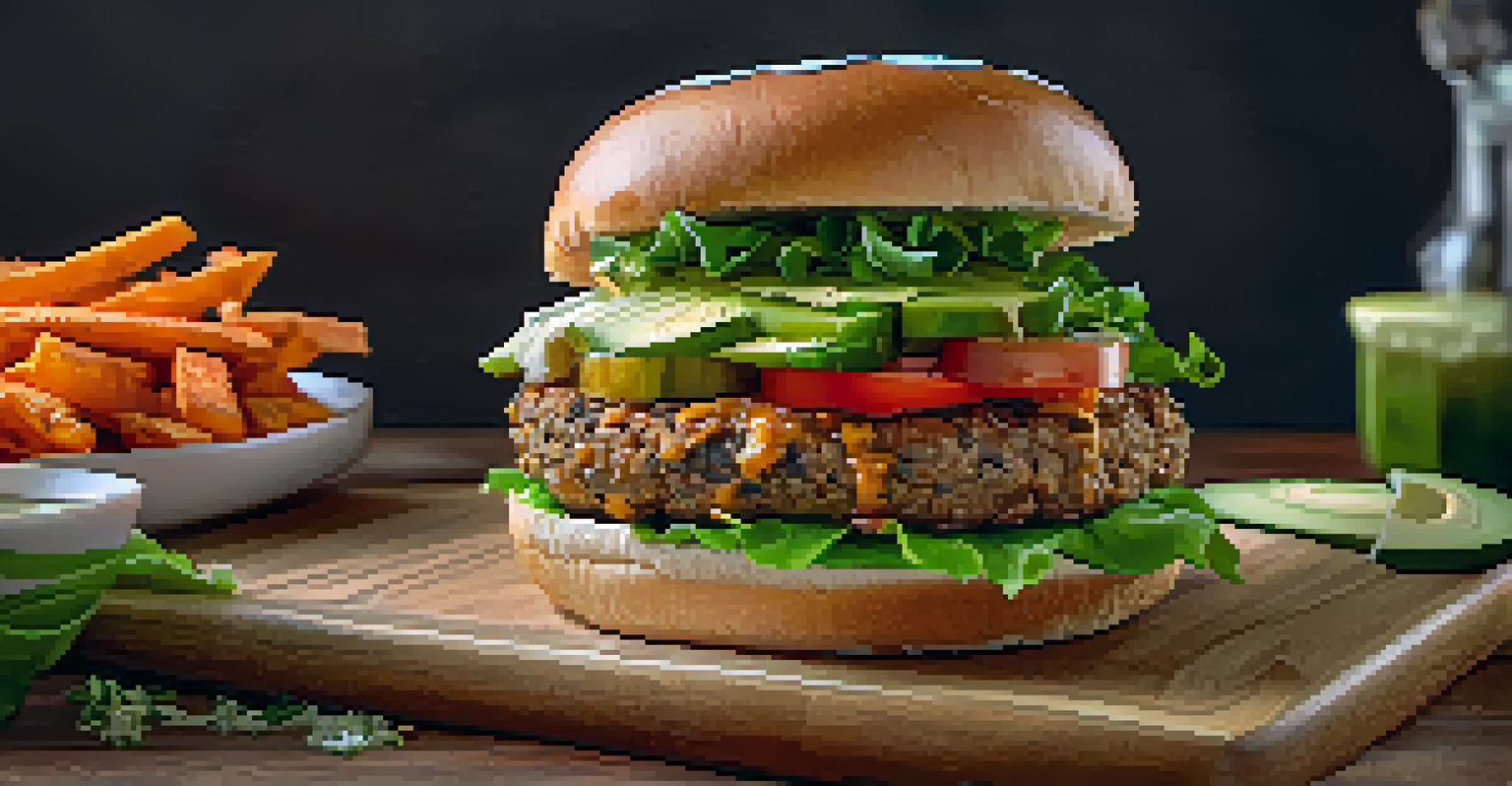Understanding the Basics of Vegetarianism for Beginners

What is Vegetarianism? An Overview for Newcomers
Vegetarianism is a dietary choice that excludes meat, fish, and poultry. Many people are drawn to vegetarianism for various reasons, including health benefits, ethical concerns about animal welfare, and environmental sustainability. It's important to note that vegetarianism can take different forms, such as lacto-vegetarian (includes dairy) or ovo-vegetarian (includes eggs).
The vegetarian way of life is one of the most important trends in the world today. It is a way of living that brings us closer to nature, to our own bodies, and to each other.
Understanding the different types of vegetarianism can help you find a diet that suits your lifestyle. For example, some vegetarians might include dairy products, while others may choose to avoid all animal-derived foods. This flexibility allows individuals to tailor their eating habits to align with their values and health goals.
As you embark on your vegetarian journey, keep an open mind and be willing to explore various foods and recipes. This approach will not only make the transition smoother but also open up a world of delicious plant-based options.
Health Benefits of a Vegetarian Diet
Adopting a vegetarian diet can have notable health benefits. Research has shown that vegetarians often consume more fruits, vegetables, and whole grains, which can lead to improved heart health, lower blood pressure, and a reduced risk of chronic diseases. Overall, a well-balanced vegetarian diet can contribute to a healthier lifestyle.

Additionally, many vegetarians find that they have more energy and better digestion. This is largely due to the increased intake of fiber-rich foods, which support a healthy gut. You might even notice improvements in your skin and mood as you fuel your body with nutrient-dense foods.
Vegetarianism Offers Flexibility
There are various types of vegetarian diets, allowing individuals to tailor their eating habits to fit their lifestyle and values.
However, it's essential to ensure that you're getting all the necessary nutrients. For instance, pay attention to protein sources, iron, and vitamin B12, which can be less abundant in a vegetarian diet. With a little planning, you can easily meet your nutritional needs.
Common Misconceptions About Vegetarianism
One common misconception is that vegetarian diets are boring or restrictive. In reality, embracing vegetarianism can open up a world of culinary creativity! With a diverse array of fruits, vegetables, grains, and legumes to choose from, the possibilities are endless. Think of it as an opportunity to explore new flavors and dishes.
Eating less meat is one of the best things you can do for your health and the health of the planet.
Another belief is that vegetarians can't get enough protein. While it's true that meat is a common protein source, there are plenty of plant-based options that can meet your protein needs. Foods like lentils, chickpeas, quinoa, and tofu are excellent sources of protein that can easily be incorporated into meals.
Lastly, some people think that being vegetarian means giving up their favorite foods. In fact, many vegetarians find ways to recreate their favorite dishes using plant-based ingredients. Whether it's a veggie burger or a creamy pasta made with cashew sauce, there's a vegetarian version for just about every dish.
Making the Transition to a Vegetarian Diet
Transitioning to a vegetarian diet doesn't have to be a sudden change—it's perfectly fine to take it slow. Start by incorporating more meatless meals into your week, gradually replacing meat with plant-based proteins. This approach allows your taste buds and digestive system to adjust without feeling overwhelmed.
Another helpful tip is to experiment with new recipes and ingredients. Visit your local grocery store or farmers' market to discover seasonal produce and unique grains. Cooking at home also gives you control over what goes into your meals, making it easier to maintain a balanced diet.
Health Benefits of Going Vegetarian
A well-balanced vegetarian diet can lead to improved heart health, increased energy, and better digestion.
Lastly, remember that it's okay to make mistakes or occasionally indulge in non-vegetarian foods. The goal is progress, not perfection. Celebrate your successes and embrace the journey toward a healthier, plant-based lifestyle.
Essential Nutrients to Consider as a Vegetarian
As you transition to a vegetarian diet, it's crucial to pay attention to certain nutrients that might be more challenging to obtain. Protein is one of the key nutrients to monitor, but luckily, there are many plant-based sources, such as beans, lentils, nuts, and seeds. Incorporating a variety of these foods into your meals will help you meet your protein needs.
Another nutrient to keep an eye on is vitamin B12, which is primarily found in animal products. Vegetarians should consider fortified foods or supplements to ensure they're getting enough of this essential vitamin, as it plays a vital role in maintaining nerve health and producing red blood cells.
Lastly, don't forget about iron and omega-3 fatty acids! Iron can be found in leafy greens, beans, and fortified cereals, while omega-3s are abundant in flaxseeds, chia seeds, and walnuts. A well-rounded vegetarian diet can easily provide these nutrients with a little planning.
Finding Support in the Vegetarian Community
Embarking on a new dietary journey can sometimes feel isolating, but finding a supportive community can make all the difference. Look for local vegetarian or vegan groups, online forums, or social media communities where you can connect with like-minded individuals. Sharing experiences, recipes, and tips can help you stay motivated and inspired.
Attending vegetarian meetups or events is another great way to meet people who share your interests. Many cities host plant-based cooking classes, potlucks, and food festivals that provide opportunities to learn and network. You'll likely find a wealth of resources and encouragement in these spaces.
Community Support is Vital
Connecting with local or online vegetarian communities can provide motivation, resources, and a sense of belonging on your dietary journey.
Additionally, many cookbooks and blogs focus on vegetarian cooking, offering a treasure trove of recipes and advice. Engaging with these resources can help you expand your culinary skills and keep your meals exciting.
Delicious Vegetarian Recipes to Get You Started
To help you kickstart your vegetarian journey, here are a few easy and delicious recipes to try. A hearty vegetable stir-fry with tofu and your choice of veggies is a quick and satisfying meal. Simply toss everything in a pan with some soy sauce, and you've got a nutritious dish in no time!
Another crowd-pleaser is a quinoa salad loaded with colorful vegetables, beans, and a zesty dressing. This dish is not only flavorful but also packed with protein and fiber, making it perfect for lunch or dinner. You can customize it with your favorite ingredients or whatever you have on hand.

Lastly, don't forget about the classic veggie burger! With countless recipes available, you can experiment with different beans, grains, and spices to create your ideal patty. Serve it on a whole-grain bun with fresh toppings for a satisfying meal that will impress even the most devoted meat-eaters.